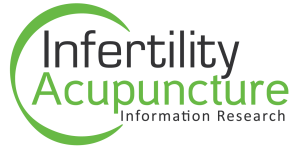In the realm of fertility, we’ve spent much time exploring the powerful potential of acupuncture to enhance reproductive outcomes. Today, we delve deeper, and we’re diving into a fascinating realm where centuries-old wisdom meets modern innovation. New research coming out of China’s Tongji Hospital has taken a fresh and intriguing look at the effects of acupuncture on pregnancy outcomes in women undergoing in vitro fertilisation (IVF).
The study conducted by Xu, Zhu, and Zheng (Arch Gynecol Obstet, 2023) is a thorough and systematic review of 25 previous trials, involving a total of 4,757 participants. The volume of information contained in these trials gives us a clearer picture of the potential benefits of acupuncture in the context of IVF, and the results are incredibly promising.
Their approach was both robust and thorough. Databases like Pubmed, Embase, the Cochrane Library, the Web of Science, and ScienceDirect were combed for all relevant research from their inception to July 2022. The researchers have left no stone unturned, pulling data from an extensive range of studies and analysing it using the Cochrane Handbook 5.3 and Review Manager 5.4 software.
But what does this vast trove of information tell us about the effect of acupuncture on IVF outcomes? According to the analysis, the clinical pregnancy rate (CPR) for the acupuncture groups was significantly higher than that of the control groups. The live birth rate (LBR), a crucial statistic in the world of assisted reproductive technology, was also noticeably higher for those who underwent acupuncture in tandem with IVF.
In essence, the research reiterates what we’ve always believed about the marriage of acupuncture and IVF. It reinforces that acupuncture significantly improves CPR and LBR among women undergoing IVF. The researchers also suggest that placebo acupuncture could serve as a relatively ideal control measure.
These findings echo a central theme of our work here at the clinic: the dynamic integration of traditional Chinese and Western medicine can be profoundly beneficial for those navigating the journey to parenthood. We believe in the potential of acupuncture as an adjunct treatment to IVF and are continuously inspired by how the blend of ancient wisdom and modern technology can lead to greater fertility outcomes.
This burgeoning body of evidence fuels our commitment to offering the best integrative fertility treatments. We are continually seeking to learn, adapt, and offer the most effective therapies to support and empower our patients on their paths to parenthood. The dance between old and new, between tradition and innovation, between acupuncture’s power to nurture your natural fertility and assisted reproductive technologies continues to create a beautiful choreography of healing, and we are honoured to be part of it.
Arch Gynecol Obstet
. 2023 Jul 12. doi: 10.1007/s00404-023-07142-1. Online ahead of print.
Effects of acupuncture on pregnancy outcomes in women undergoing in vitro fertilization: an updated systematic review and meta-analysis
Menghao Xu 1, Mengdi Zhu 1, Cuihong Zheng 2
Affiliations
1Institute of Integrated Traditional Chinese and Western Medicine, Tongji Hospital of Tongji Medical College, Huazhong University of Science and Technology, No. 1095 Jiefang Avenue, Wuhan, 430030, People’s Republic of China.
2Institute of Integrated Traditional Chinese and Western Medicine, Tongji Hospital of Tongji Medical College, Huazhong University of Science and Technology, No. 1095 Jiefang Avenue, Wuhan, 430030, People’s Republic of China. chzheng@tjh.tjmu.edu.cn.
PMID: 37436463 DOI: 10.1007/s00404-023-07142-1
Abstract
Purpose: To evaluate the effects of acupuncture on IVF-ET outcomes.
Methods: Digital databases, including Pubmed, Embase, the Cochrane Library, the Web of Science and ScienceDirect, were searched from their inception to July 2022. The MeSH terms we used included: acupuncture, in vitro fertilization, assisted reproductive technology and randomized controlled trial. The reference lists of relevant documents were also searched. The biases of included studies were assessed by the Cochrane Handbook 5.3. The major outcomes were clinical pregnancy rate (CPR) and live birth rate (LBR). The pregnancy outcomes reported in these trials were pooled and expressed as risk ratios (RR) with 95% confidence interval (CI) in the Review Manager 5.4 meta-analysis software. Heterogeneity of the therapeutic effect was evaluated with a forest plot analysis. Publication bias was assessed by a funnel plot analysis.
Results: Twenty-five trials (a total of 4757 participants) were included in this review. There were no significant publication biases for most of the comparisons among these studies. The pooled CPR (25 trials) of all the acupuncture groups (43.6%) was significantly higher than that of all the control groups (33.2%, P < 0.00001), and the pooled LBR (11 trials) of all the acupuncture groups (38.0%) was significantly higher than that of all the control groups (28.7%, P < 0.00001). Different acupuncture methods (manual acupuncture, electrical acupuncture and transcutaneous acupoint electrical stimulation), acupuncture time (before or during the time of controlled ovarian hyperstimulation and around the time of embryo transfer), and acupuncture courses (at least 4 sessions and less than 4 sessions) have respectively positive effects on IVF outcomes.
Conclusion: Acupuncture can significantly improve CPR and LBR among women undergoing IVF. Placebo acupuncture can be a relatively ideal control measure.
Keywords: Acupuncture; Assisted reproductive technology; In vitro fertilization; Pregnancy rate.
© 2023. The Author(s), under exclusive licence to Springer-Verlag GmbH Germany, part of Springer Nature.
References
Zegers-Hochschild F, Adamson GD, de Mouzon J, Ishihara O, Mansour R, Nygren K, Sullivan E, Vanderpoel S, International Committee for Monitoring Assisted Reproductive, O World Health (2009) International Committee for Monitoring Assisted Reproductive Technology (ICMART) and the World Health Organization (WHO) revised glossary of ART terminology. Fertil Steril 92(5):1520–1524. https://doi.org/10.1016/j.fertnstert.2009.09.009 – DOI – PubMed
Mascarenhas MN, Flaxman SR, Boerma T, Vanderpoel S, Stevens GA (2012) National, regional, and global trends in infertility prevalence since 1990: a systematic analysis of 277 health surveys. PLoS Med 9(12):e1001356. https://doi.org/10.1371/journal.pmed.1001356 – DOI – PubMed – PMC
Zegers-Hochschild F, Schwarze JE, Crosby JA, Musri C, Urbina MT, R Latin American Network of Assisted (2013) Assisted reproductive techniques in Latin America: the Latin American Registry. Reprod Biomed 32(6):614–625. https://doi.org/10.1016/j.rbmo.2016.02.012 – DOI
Nandi A, Shah A, Gudi A, Homburg R (2014) Acupuncture in IVF: a review of current literature. J Obstet Gynaecol 34(7):555–561. https://doi.org/10.3109/01443615.2014.919997) – DOI – PubMed
Manheimer E, Zhang G, Udoff L, Haramati A, Langenberg P, Berman BM, Bouter LM (2008) Effects of acupuncture on rates of pregnancy and live birth among women undergoing in vitro fertilisation: systematic review and meta-analysis. BMJ 336(7643):545–549. https://doi.org/10.1136/bmj.39471.430451.BE – DOI – PubMed – PMC

